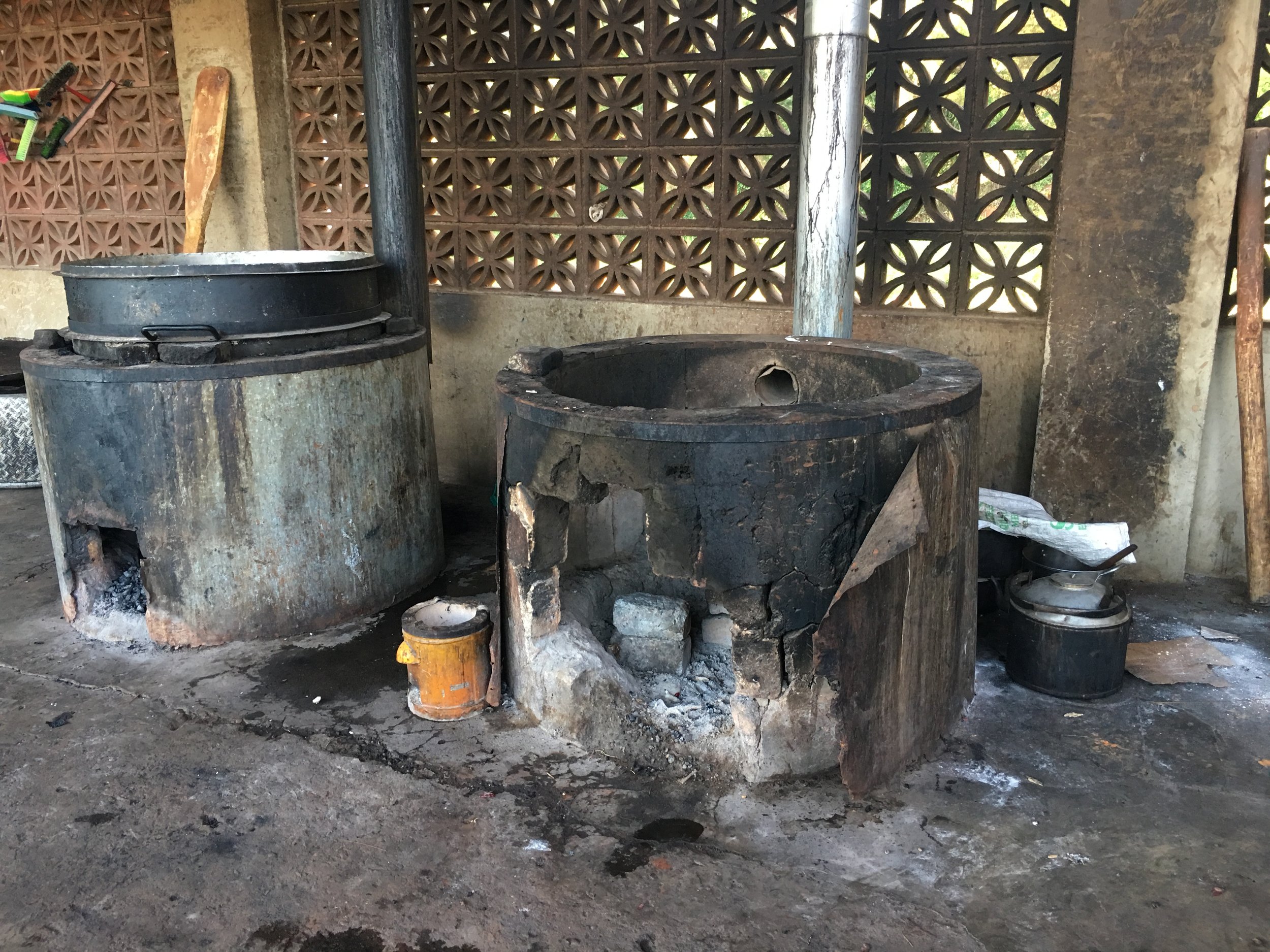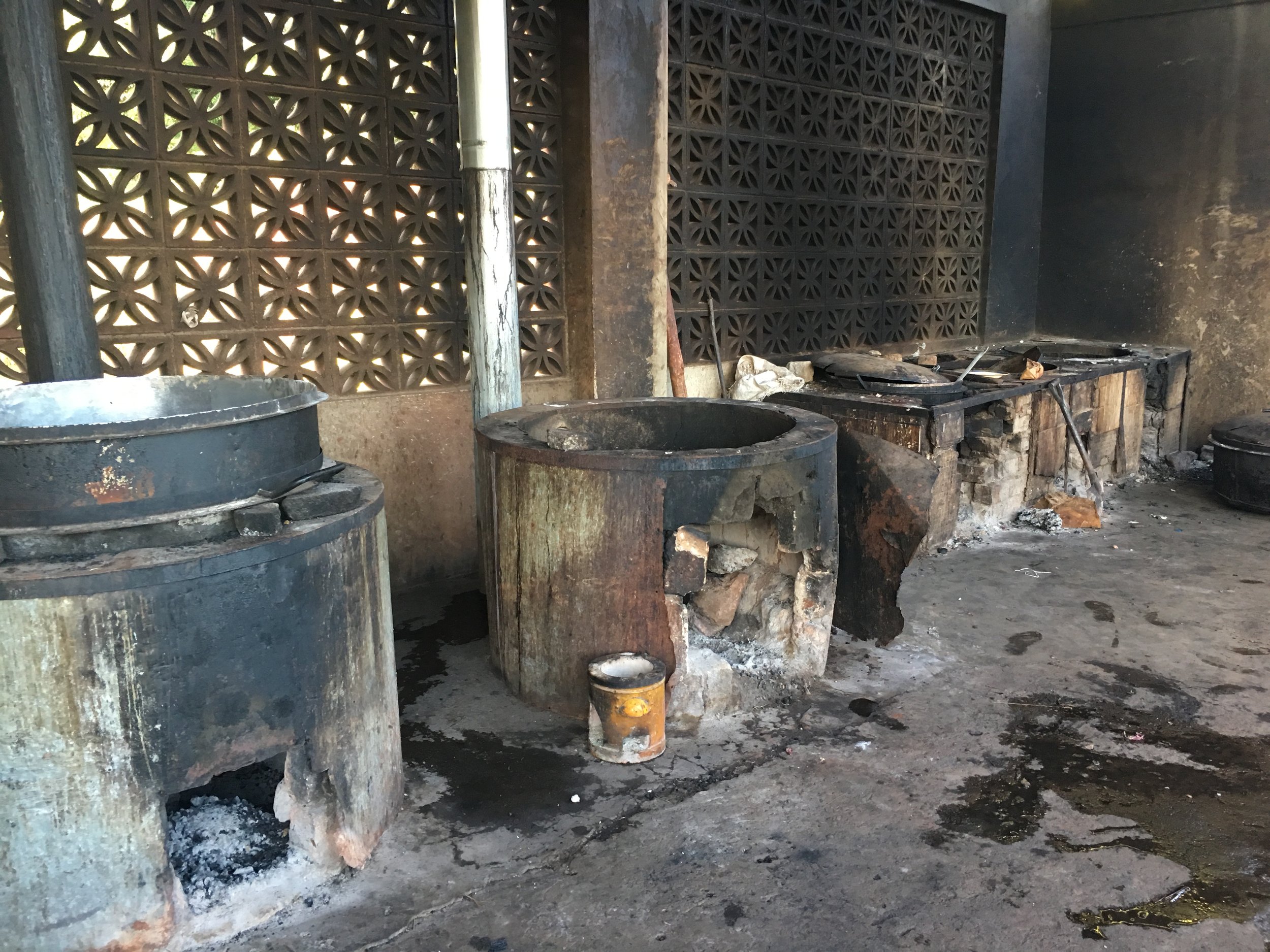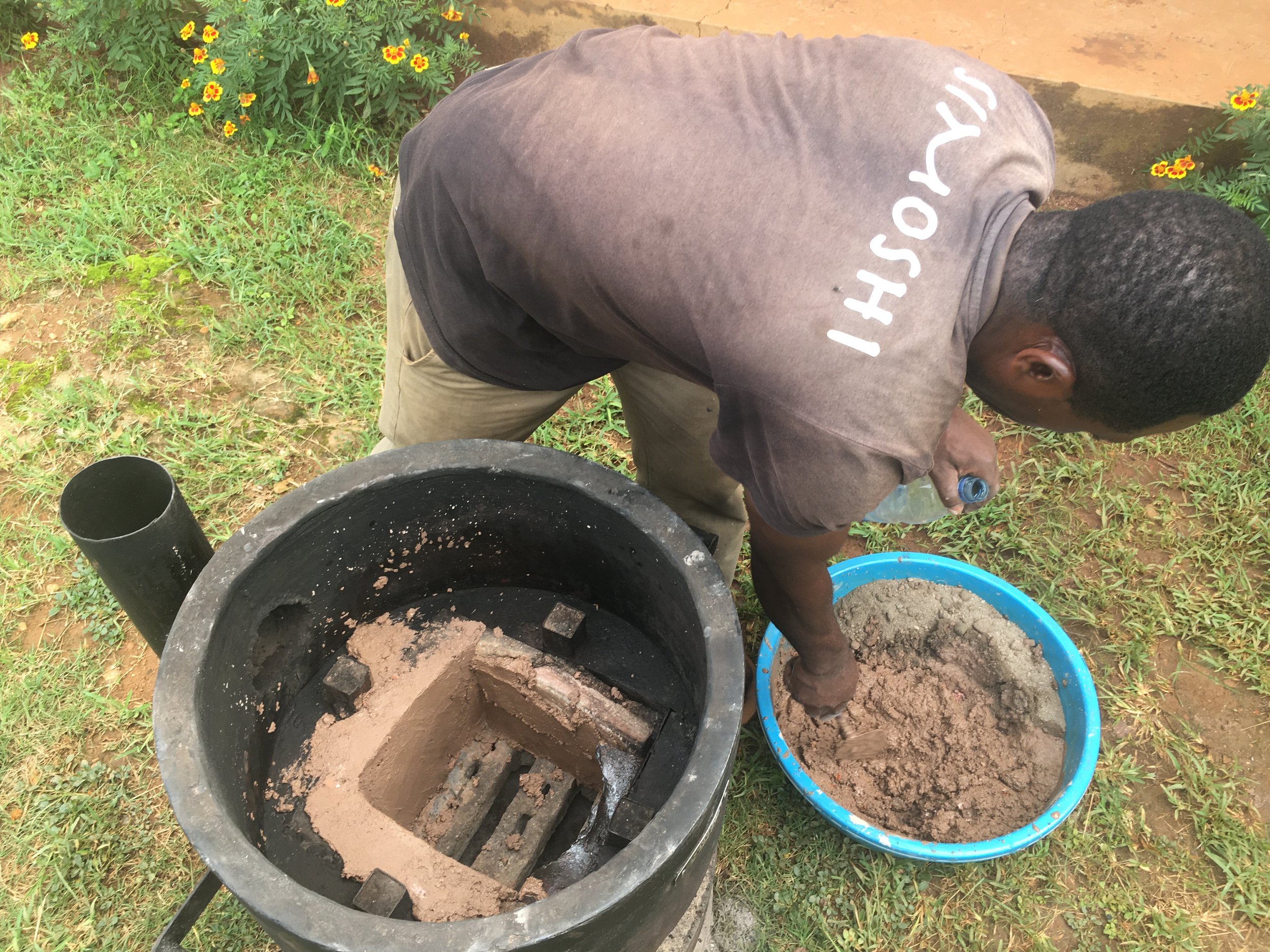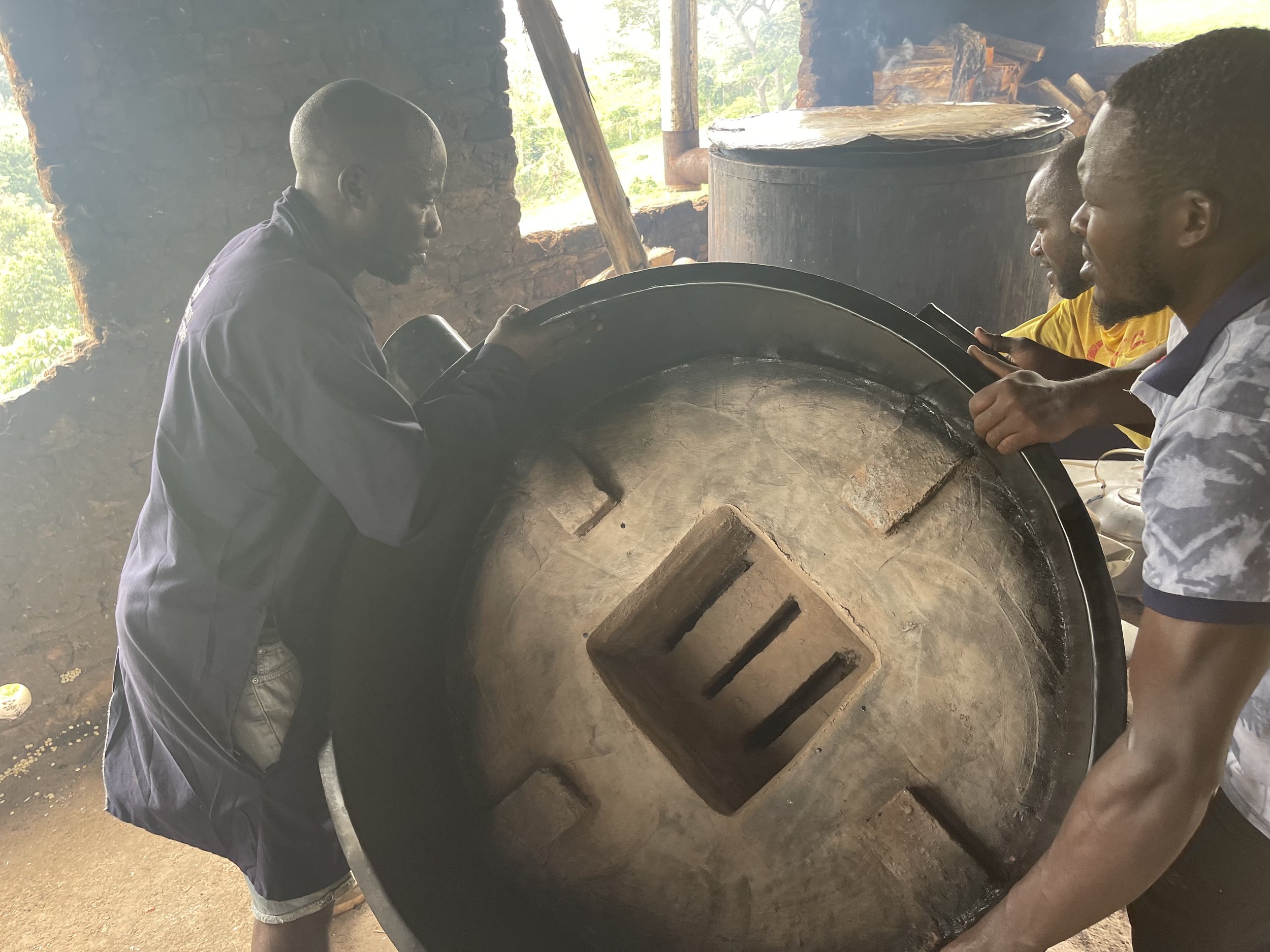Over a half billion sub-Saharan Africans do not have electricity and over 80% rely on traditional biomass, i.e., charcoal, wood, and kerosene, for cooking, and the region is falling further behind in achieving the fundamental SDG7 energy access goal of clean-cooking solutions for all.
22,000 schools in Uganda still use 3-stone fires to prepare their daily meals.
Some few schools make a HUGE effort to buy institutional improved cook stoves (IICS). Unfortunately, the cooking sector is unregulated, and schools fall into the hands of unprofessional stove manufacturers that:
do not test their stoves following international standards to ensure their product is fuel efficient and
do not offer any after sales support or maintenance to the stoves.
The pictures below are the typical sad scenario we find in school kitchens: destroyed stoves, that once upon a time, used to be a decent component of the kitchen environment.
Just like any other product in life, improved cook stoves also need on-going repairs. Imagine these are under fire every day, sometimes in the evenings for those boarding schools. Fire eventually destroys the firebox chamber of the IICS, and if these are not regularly maintained, schools end up consuming a lot of firewood, just as they did before with their traditional 3-stone fires.
One amazing feature at Simoshi, is using the revenues accrued from the sale of the carbon credits, to support all participating schools with free IICS annual maintenance, for a period of 10 years. We have been providing this support since 2016 when we first installed 4 IICS at Gangu Muslim Primary School.
Maintenance events include work on the insulation bricks, or on the metal body and chimney pipes. The first item that gets damaged from the flames is the combustion chamber, so it is a must that every IICS has to be plastered at least once a year, with the special insulation plastering mix, to ensure all insulation bricks are intact and in place, as shown in the pictures below.




